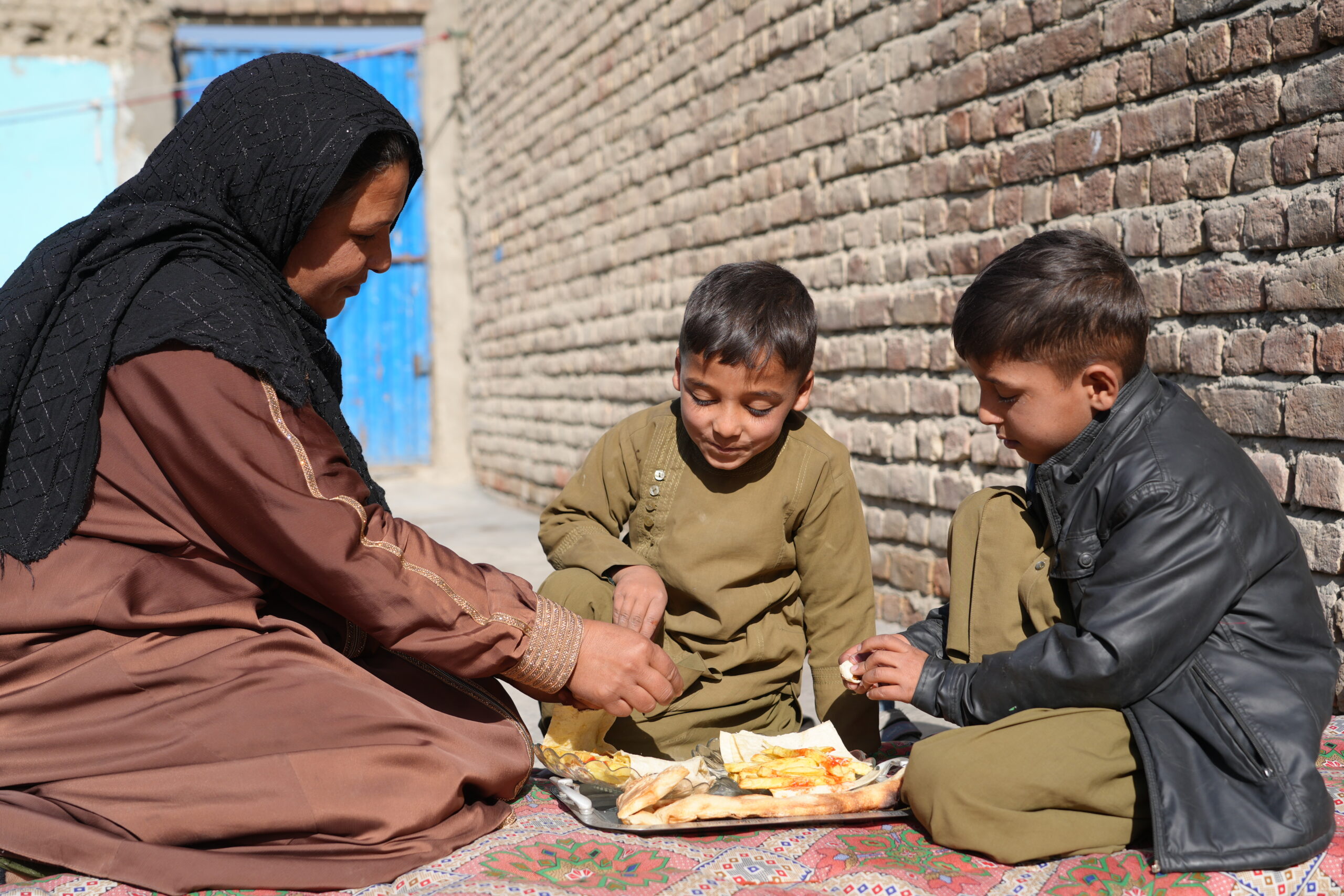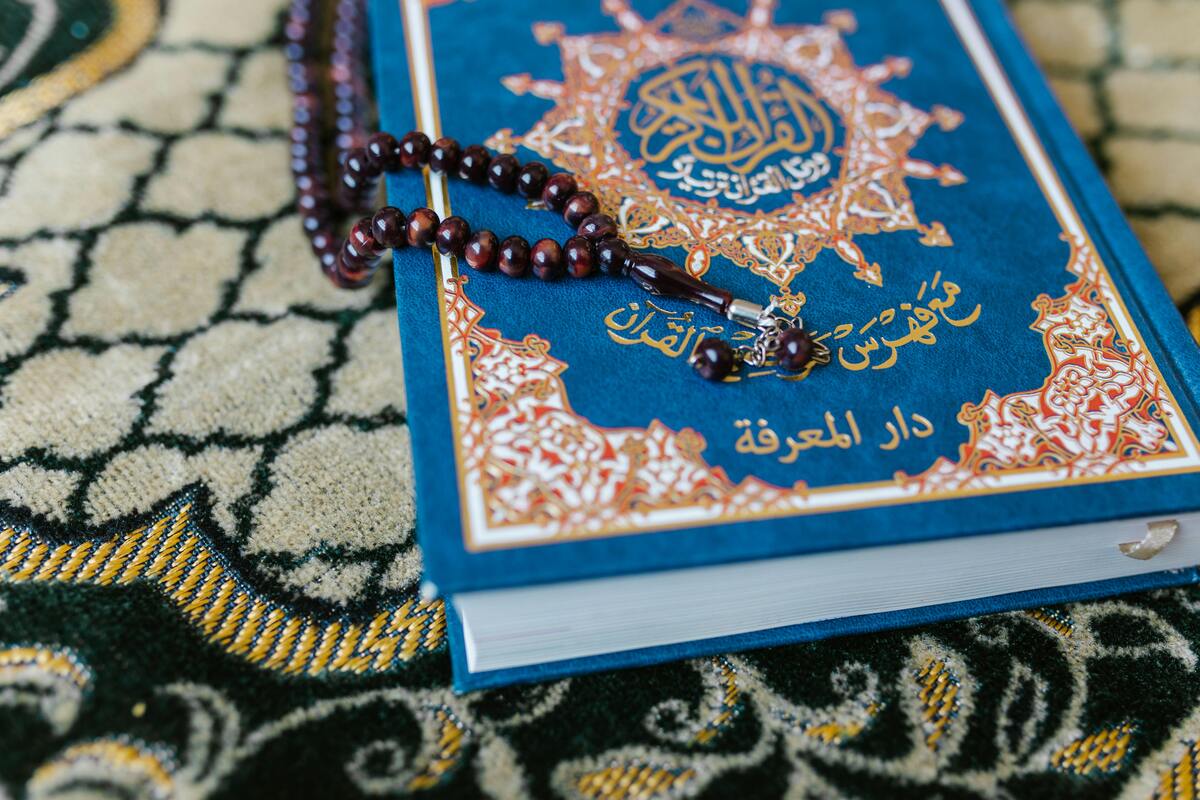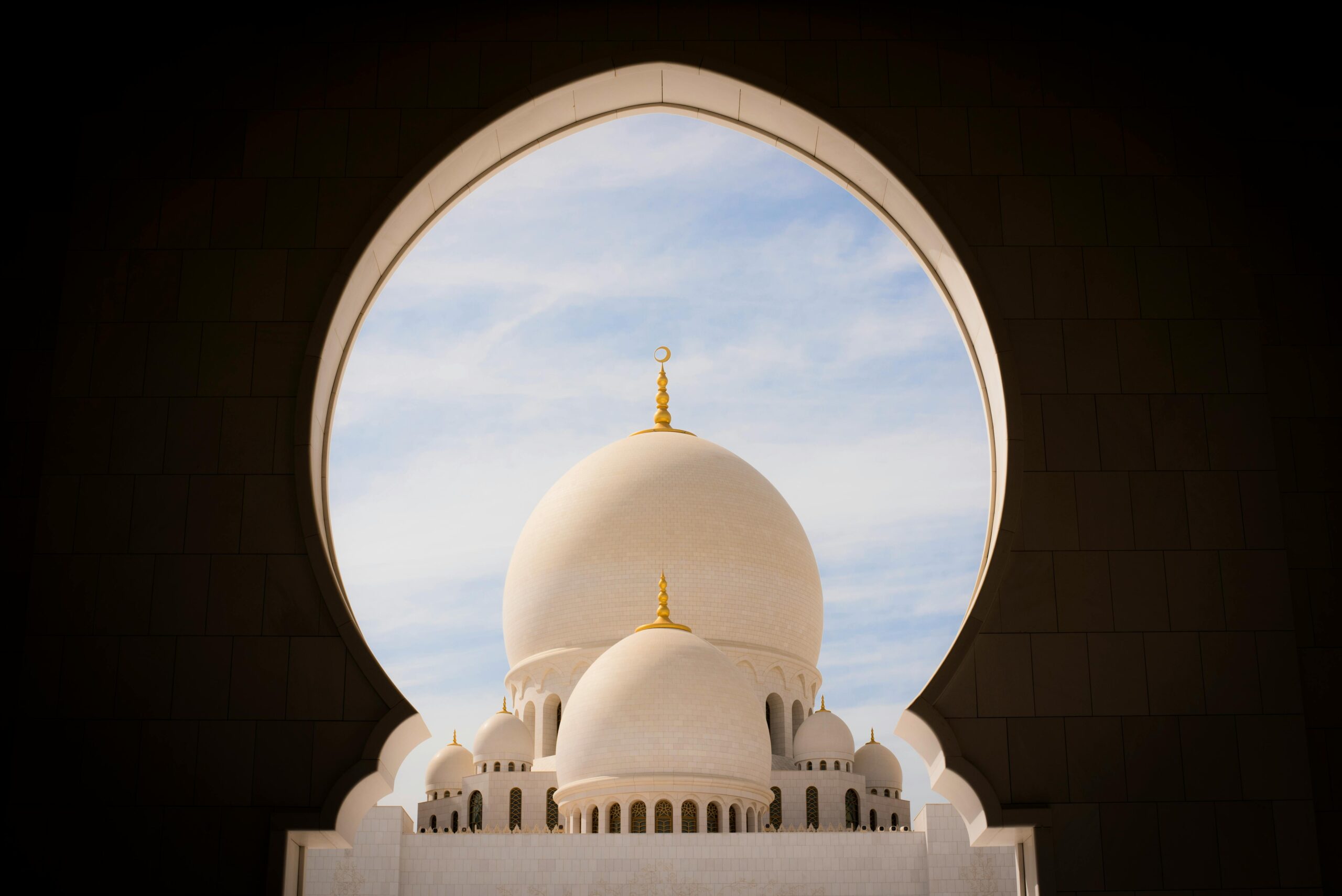
Sadaqah (or Sadaqa), in Islam, refers to a voluntary act of charity that is wide-reaching and done for the sake of Allah (SWT).
It can come in the form of monetary charity, or an act of kindness or support extended to other beings (including animals). It can also be given in any amount and be performed at any time of the year.
“Charity does not decrease wealth, no one forgives another but that Allah increases his honour, and no one humbles himself for the sake of Allah but that Allah raises his status.”
Muslim
Sadaqah is a voluntary act of charity. It is given for the sole purpose of pleasing Allah (SWT), without expecting anything in return.
The Prophet Muhammad (ﷺ) regularly emphasised the importance and benefits of giving Sadaqah, including how it purifies oneself and their wealth, as “Sadaqah extinguishes sin as water extinguishes fire.” (Tirmidhi)
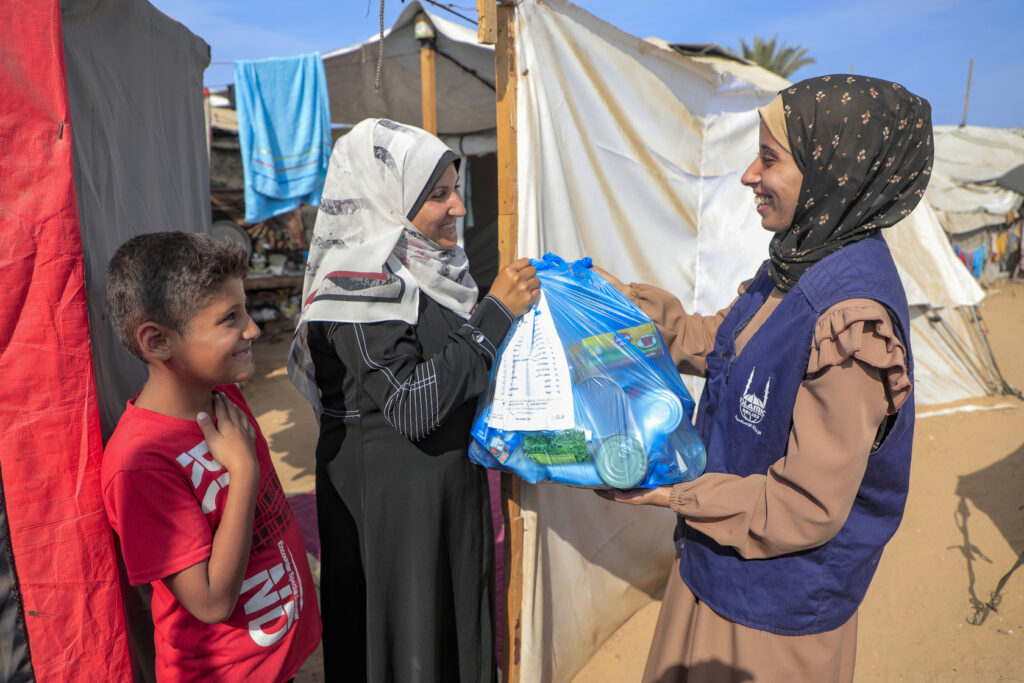
The Prophet (ﷺ) himself was also very generous. He would often give his food, money, and belongings to the poor, leaving almost nothing for himself. He set an example for believers to be compassionate and increase their charity for the sake of Allah (SWT). By doing so, he constantly reminded them of how it would bring them great rewards both in this life and the next.
“The believer’s shade on the Day of Resurrection will be his charity.”
Tirmidhi
While Zakat and Sadaqah are both considered as charity, there is one key difference. Zakat is obligatory and one of the five pillars of Islam. On the other hand, Sadaqah is simply a kind gesture made with the intention of helping others.
Sadaqah is an entirely voluntary charity that can be performed at any time of year, and any amount can be given. However, Zakat is an obligatory charity due upon every Muslim whose total possessions (cash, gold, silver, shares, etc.) meet or exceed the Nisab threshold on a yearly basis.
Zakat also has some rules about how much needs to be given and who can receive it, while Sadaqah can be used for any project or program that is of benefit to people.
Sadaqah can be anything from an act of kindness to a monetary donation, so long it is done for the sake of Allah (SWT). It could be a voluntary donation to a local fundraiser. It can also be helping someone in need, giving a smile or even removing a harmful object from your path.
“While a man was going on a way, he saw a thorny branch and removed it from the way and Allah became pleased by his action and forgave him for that.“
Tirmidhi
Aqiqah, Fidya and Kaffarah are also examples of Sadaqah.
Some more forms of Sadaqah include:
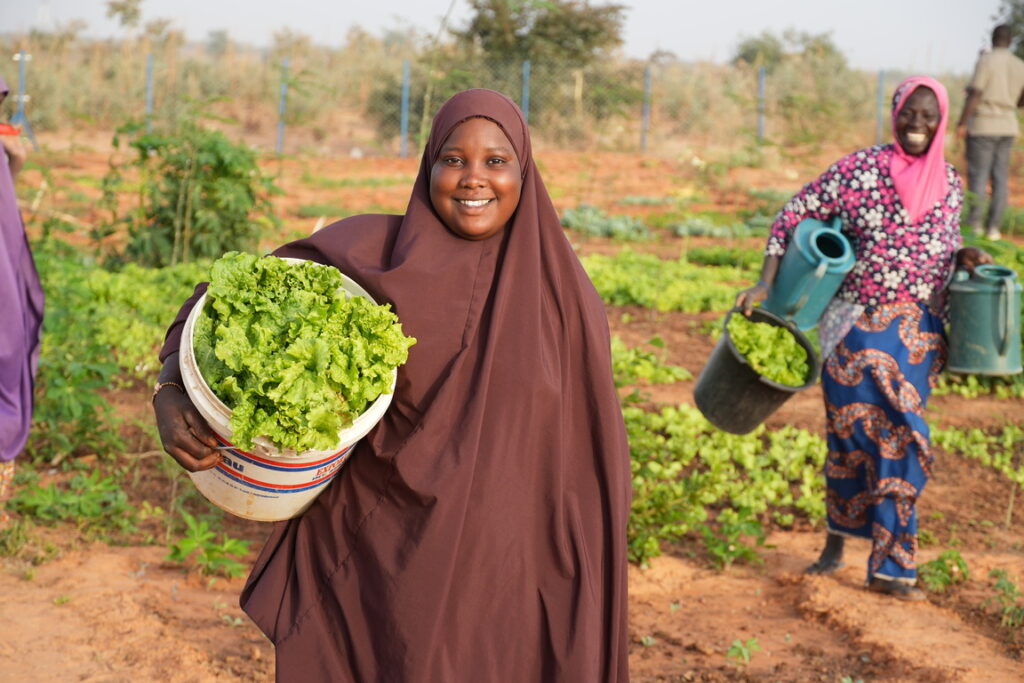
“When a person dies, all their deeds end except three: a continuing charity, beneficial knowledge and a child who prays for them.”
Muslim
An important concept within Islam is the idea of Sadaqah Jariyah – an ‘ongoing charity’. This slightly differs from regular Sadaqah as it is considered a charity that has long-term positive effects on a community. As such, it goes beyond just providing immediate relief.
In today’s terms, Sadaqah Jariyah can be considered what the international development sector calls ‘sustainable development’, programs, which can be carried out by both Islamic and other NGOs.
Some examples of sustainable development programs include projects that build homes, schools, and hospitals. Other examples include installing durable water systems, turning an area of land into a farm that continues to give crops for years to come or helping a poor family start a business that continues generating profit for future generations.
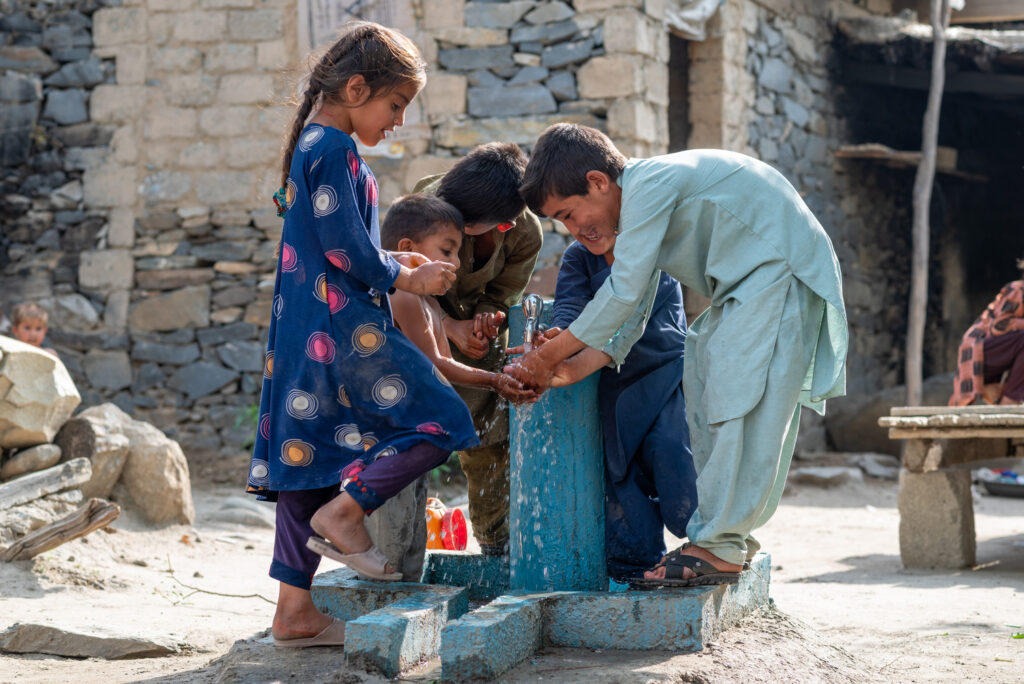
When you give Sadaqah with Islamic Relief, you provide a lifeline to the world’s vulnerable people and communities and give them a chance at a brighter future.
You help give children in need and orphans access to food, shelter, and an education. You help provide crucial medical care and relief to people facing the effects of war and crisis, like our brothers and sisters in Yemen, Afghanistan, and Palestine.
Furthermore, you also provide livelihoods to thousands of people and communities, helping break the cycle of poverty for good.
“Give charity without delay, for it stands in the way of calamity.”
Tirmidhi
Help be a lifeline to thousands of families and communities in need around the world when you give with Islamic Relief.
Sadaqah is a voluntary act of charity and worship that can bring great rewards. You can give it in any amount, any time of the year, however many times you like.
Sadaqah can be given to any project or program that benefits people. These include providing emergency aid or donating to your local mosque.
Sadaqah is an entirely voluntary charity, where any amount can be given at any time of year. Zakat is an obligatory charity. It is due from every Muslim whose total possessions (cash, gold, silver, shares, etc.) meet or exceed the Nisab threshold.
There are lots of recommended ways, and some great examples have been outlined here in this article. However, this Hadith is very helpful as a guide:
“The most beloved of deeds to Allah are those that are most consistent, even if it is small (in amount).”
[Bukhari]
The most common type is to give money to the less fortunate. These include vulnerable people who are less able both physically and mentally. However, Sadaqah is not only monetary. For example, a smile or even relieving someone of their hardship also counts.
In the modern context, the word means “voluntary charity”. However, the literal translation of it in Arabic is “righteousness”. The word stems from sidq, which means sincerity. This suggests that Sadaqah is a righteous behaviour, which shows sincerity of faith.
